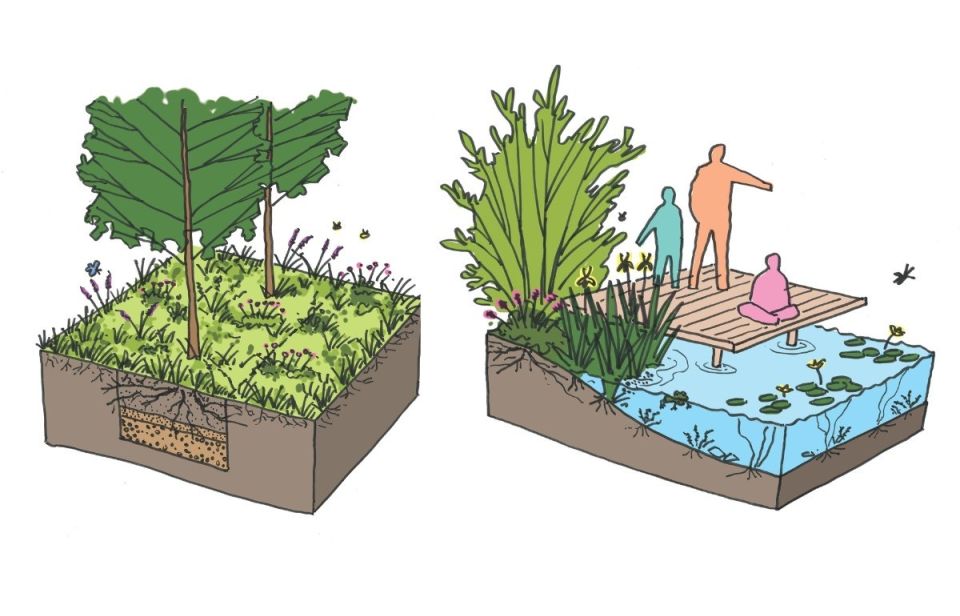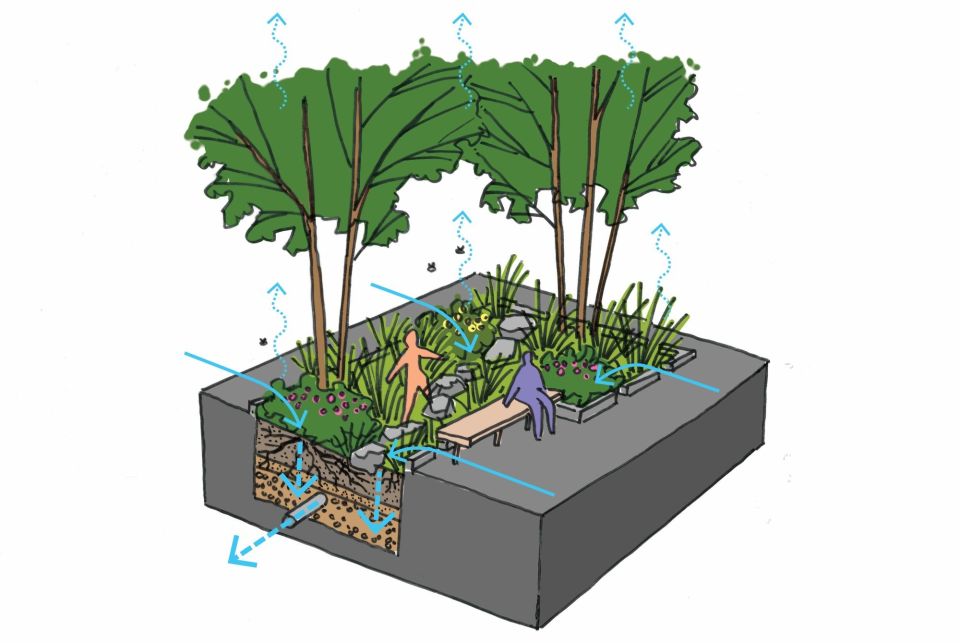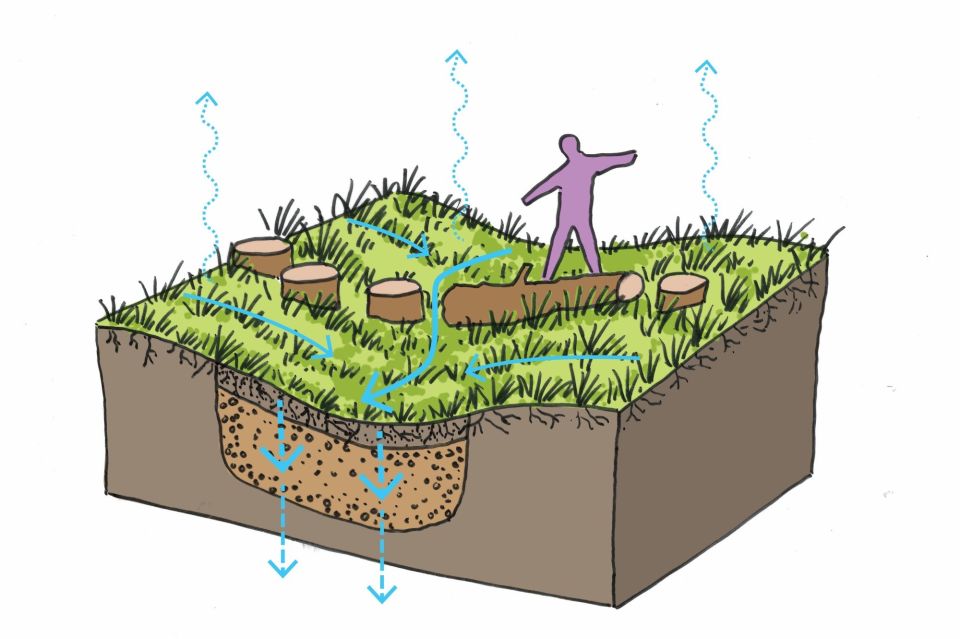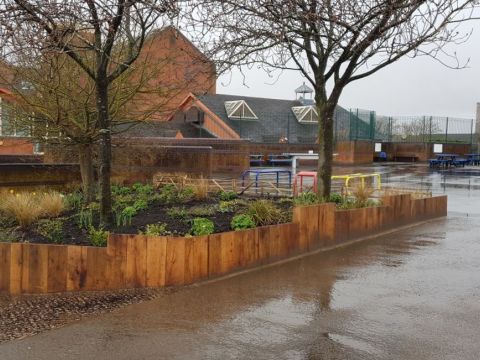SuDS in Cardiff Schools Feasibility Study

With funding from Natural Resources Wales, we've created a ‘SuDS in Cardiff Schools Feasibility Study’ in partnership with schools, technical consultants and Cardiff Council. The study includes an assessment of opportunities for natural small-scale sustainable drainage systems (SuDS) interventions to address surface flooding at five Cardiff schools.
What are SuDS?
Sustainable Drainage Systems (SuDS) use natural features like soil, trees and vegetation to soak up, slow down and store rainwater, reducing flooding and easing pressure on drains. Instead of seeing surface water as waste, SuDS turn it into a resource that can support greener spaces.
Wales has led the way in adopting SuDS, with Cardiff Council already retrofitting them in places like Greener Grangetown - and now looking at how schools can benefit too.

Study aims
The aim of this feasibility study is to support Natural Resources Wales identify common surface water flood risk solutions for schools across Wales and Cardiff, using SuDS as a nature based, efficient and effective option.
Each school has been selected by Trees for Cities because of their strategic location in areas defined as being at medium to high risk of surface water flooding.
The process
For each of the five schools, we identified surface water problems with the sites, and identified opportunities for improvement. Using SuDS as a basis for these recommendations, they would enable the schools to manage local flood risk, improve water quality of storm runoff and amenity infrastructure, increase biodiversity, and create educational and playful interactive spaces.
Our design team have created Concept Proposals to demonstrate 'the art of the possible' - an optimal range of solutions using SuDS components.

Potential impact
Implementation of SuDS in schools would have positive impact not only for the school, but also for the local area by reducing the runoff from each site and maintaining pollution control. If the Concept Proposals were implemented:
- The SuDS interventions would reduce runoff from all five sites by between 44%-54% with scope to increase that volume to closer to 100%
- Further assessment of each site for improvements to water quality, suggests that interventions would be sufficient to manage pollution loadings across all five sites
- Financial benefits gained for all schools, using metrics for all benefits combined at a
minimum would be £856,000. - Total financial benefits gained for all schools, using optimistic end of the output metrics for all combined schools could come close to £2.797 million.
Based on the report, we have since applied for further funding from Natural Resources Wales to build on this study, and co-design with pupils Concept Proposals at three of the schools.
Sustainable Drainage Systems Resources
Explore our school resources on SuDS, flooding and water conservation. Fun activities to help students learn natural solutions to climate change.
Find out moreDonate to Trees for Cities and together we can help cities grow into greener, cleaner and healthier places for people to live and work worldwide.
Donate